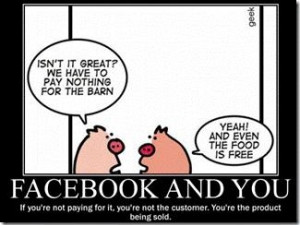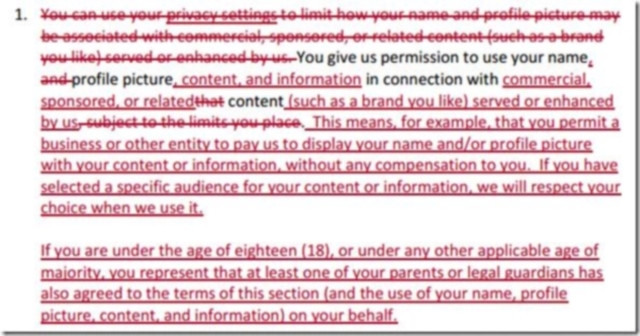
"I have read and accept the terms and conditions" is the biggest lie we tell when we sign up for new services, register for new sites or download new apps. How many of us can really say we have read these one-sized Ariel font, legalese policy documents?
Facebook has policy documents like this, and just like many other companies, it has reserved the right to update its policy document when it sees fit.
Recently, Facebook has fallen foul of the law by using people's pictures in "sponsored story" ads without permission. It was eventually settled that Facebook will need to pay 614 000 users $9 million as part of a $20 million legal settlement. The balance of the money will be distributed among legal fees and various non-profit organisations.
Following this faux pas, Facebook wasted no time in announcing that following comments and feedback from the Facebook community, it will be updating two crucial policy documents: its Data Use Policy and the Statement of Rights and Responsibilities. In an e-mail from Erin Egan, Facebook's chief privacy officer, it is explained: "We update these documents from time to time to make sure we keep you posted about the latest things you can do with Facebook."
The e-mail goes on to explain the main changes:
* How advertising works on Facebook;
* What to expect when it comes to using your name, profile picture, content and personal info with ads or commercial content;
* How to control or remove apps you've used; and
* What data you're sharing with mobile devices.
Be aware
In light of these changes, I have picked out some of the proposed changes you should be aware of. I have used the "Track Changes" (highlighted in red) to show the portions of the documents that have changed from their original versions in December 2011 to the new ones in September 2013.
1. Smile - your picture can be used in an advert:
At its discretion, Facebook can now legally use your name, profile picture, content that you post and any information you have in your profile for its 'Sponsored Stories', without legal reproach.

Even though the document does say it will need to get your consent first, what is concerning is that you can no longer opt out of this by changing your privacy settings.
2. More data from and about you
Facebook has always been allowed and able to collect various forms of information whenever you use the network.

This section has been extended somewhat to include not just your IP address, but your mobile number, operating system and GPS location.
3. How ads are delivered
Facebook has rewritten the 'Advertising Section' to make it clearer about how adverts are served to you, and thus forever ending the argument of "does Facebook 'read my timeline' and things I post?"

Yes. It does.
Adverts are sent to you based on:
* Information you provide at registration or add to your account or timeline;
* Things you share and do on Facebook, such as what you like, and your interactions with advertisements, partners, or apps;
* Keywords from your stories; and
* Things we infer from your use of Facebook.
Interestingly, the section that reads: "We do not share any of your information with advertisers" is now crossed out.
In summary
There was a rumour that Facebook was going to start charging users to use its services. Even though it was just an Internet rumour, there was an outcry from the Facebook population screaming "foul". The privacy of information is a vicious circle. People want to feel that their personal information is protected and yet they still want to get the service for free. The companies running these services need to protect their users' info, but also need to monetise their offering - they are a business, after all.
These latest Facebook changes are aimed at enticing advertisers to tap into this large, highly mined and targeted data set that each one of the millions of Facebook users is helping to contribute towards. Ads are not going away, and so if you are going to get served an ad, why not have an ad that is relevant to you? If the idea of Facebook having access to your life is freaking you out, perhaps you should censor what you post, or consider closing your Facebook account. However, make no mistake, other similar services have the same policy terms too.
I recall my first e-mail address was Pseudo-name@hotmail.com, as you never gave your private name online. These days are long gone. While privacy of information is a big concern among us 'oldies', it seems that among the younger generation, this is less so. When you think that these are the workforce of tomorrow, the privacy of information will need to adapt faster than ever before. And ads are just going to morph too - they're not going away.
Share